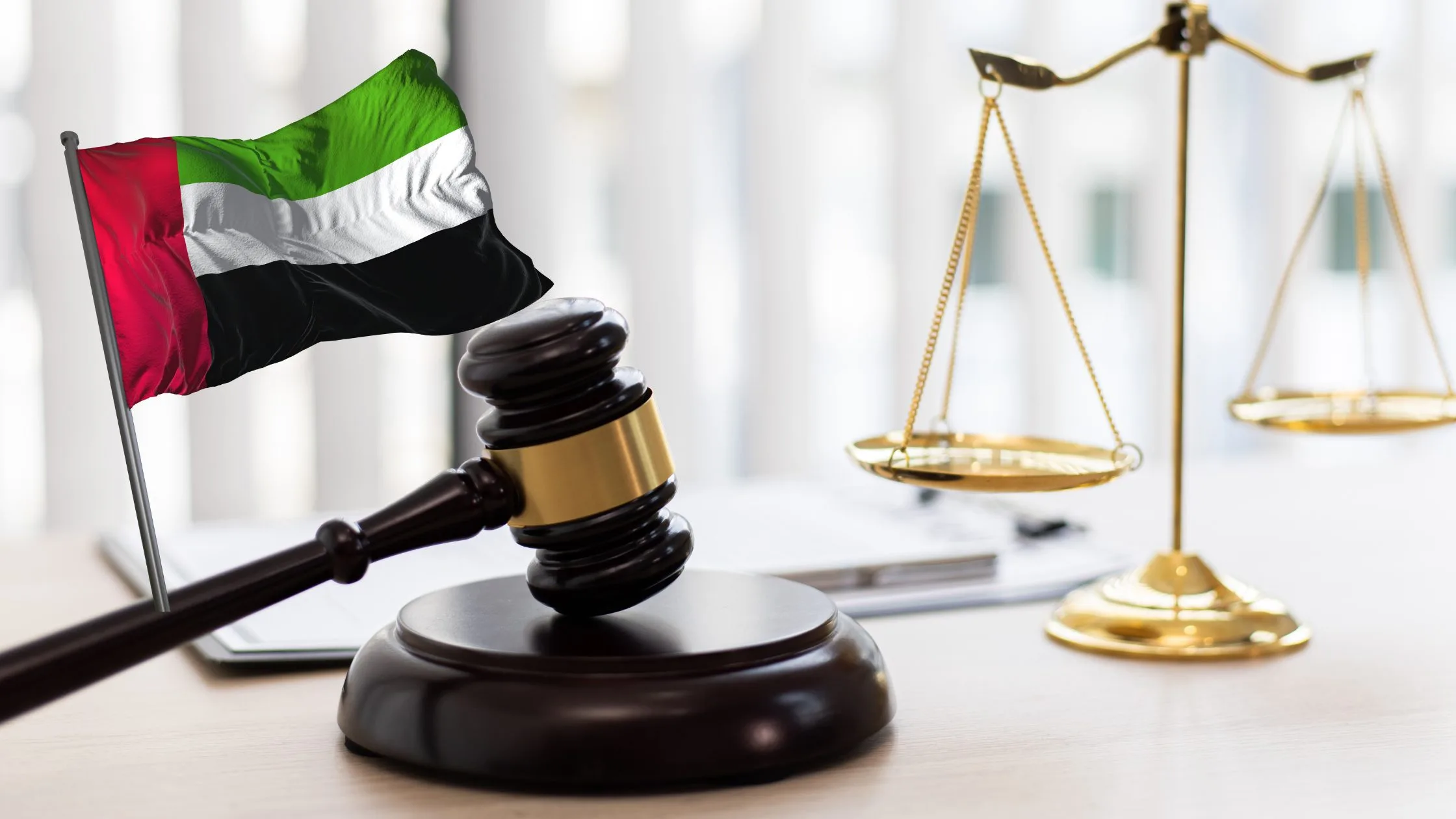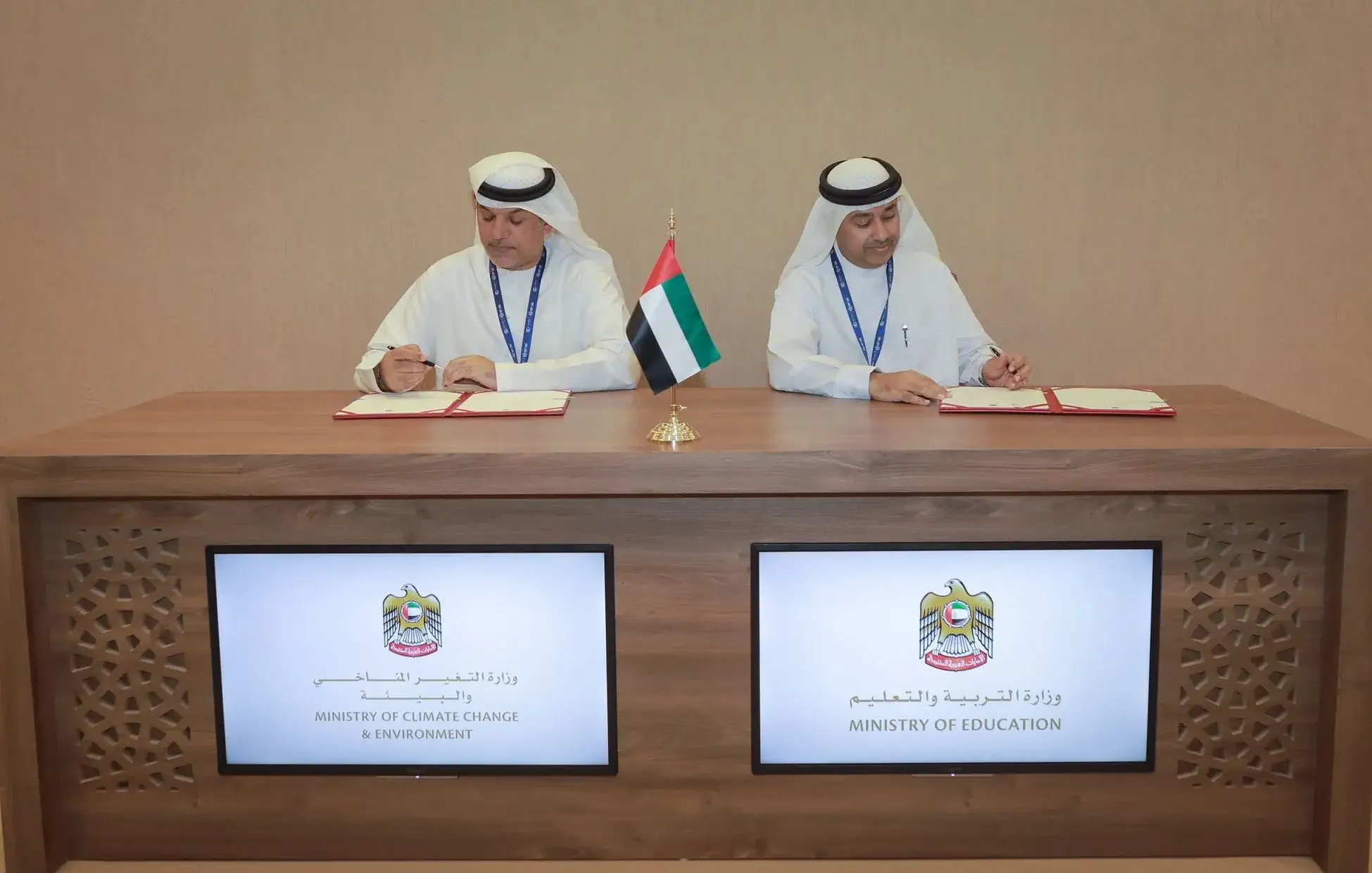The United Arab Emirates (UAE) has made significant strides in reforming its education sector to align with national development goals and global standards. As of 2025, several key laws and policies have been enacted to enhance the quality, accessibility, and integrity of education across the country.
In this comprehensive guide, we highlight the most significant UAE laws on education and reforms that are shaping the UAE’s educational landscape.
7 UAE Laws on Education to Know in 2025

Let’s discuss here:
1. Federal Decree-Law No. 39 of 2022: Compulsory Education
Education is a constitutional right in the UAE, and the government has reinforced this through Federal Decree-Law No. 39 of 2022, mandating compulsory education. This law obligates parents and legal guardians to enroll their children in educational institutions upon reaching the specified age.
Note: Those who wish to settle in the UAE with their families must have their personal documents translated into the country’s official language. This is especially important for children’s academic documents to ensure the smooth continuation of their studies. It’s recommended to work with a reputable legal translation company in Dubai that specializes in certified and legal translations to avoid any delays or rejections. For support, families may consult MOE-accredited translation services to ensure compliance.
Education is mandatory for UAE citizens from primary school until the completion of their schooling. Expatriate residents are required to ensure their children complete the primary stage of education.
Failure to comply with this law can result in legal consequences, including fines ranging from AED 2,000 to AED 50,000 and/or imprisonment. The law underscores the UAE’s commitment to ensuring that every child has access to quality education, recognizing it as a fundamental right and a cornerstone for national development.
For detailed information on UAE government education policies, click here.
2. Federal Decree-Law No. 33 of 2023: Combating Cheating and Examination Violations
Academic integrity is paramount in the UAE’s education system. Federal Law No. 33 of 2023 addresses the issue of cheating and violations within the examination system. This law aims to uphold the credibility of academic assessments by imposing strict penalties on individuals involved in dishonest practices during examinations.
While specific details of the penalties are outlined in the legislation, the overarching goal is to deter misconduct and maintain the integrity of the educational process. By enforcing this law, the UAE ensures that academic qualifications reflect genuine achievement and competence.
3. National Qualifications Framework (NQF) and Cabinet Resolution No. 106 of 2024
To standardize educational qualifications and ensure their alignment with international standards, the UAE has implemented the National Qualifications Framework (NQF). Cabinet Resolution No. 106 of 2024 formalized the adoption of the NQF, which categorizes qualifications based on levels of learning outcomes and competencies.
The NQF serves multiple purposes:
- Quality Assurance: Ensures that educational programs meet consistent standards across institutions.
- Recognition of Prior Learning: Facilitates the acknowledgment of skills and knowledge acquired outside formal education.
- Mobility and Progression: Enables learners to transition smoothly between different levels and types of education and training.
By establishing a clear and coherent structure for qualifications, the NQF enhances the transparency and comparability of educational credentials within the UAE and internationally.
4. Federal Decree-Law No. 48 of 2021: Higher Education
Recognizing the pivotal role of higher education in national development, the UAE enacted Federal Decree-Law No. 48 of 2021 to govern the higher education sector. This law outlines the regulatory framework for universities and higher education institutions, emphasizing quality assurance, academic freedom, and institutional autonomy.
Key provisions include:
- Licensing and Accreditation: Establishes criteria for the licensing of institutions and accreditation of academic programs.
- Governance: Defines the roles and responsibilities of governing bodies within higher education institutions.
- Academic Standards: Sets benchmarks for curriculum development, faculty qualifications, and research output.
The law aims to foster a competitive and innovative higher education environment that contributes to the UAE’s knowledge-based economy.
5. Federal Law No. 9 of 2021: Prohibition of Using Scientific Certificates from Unlicensed Entities
To safeguard the integrity of academic qualifications, Federal Law No. 9 of 2021 prohibits the use of scientific certificates issued by unlicensed entities. This legislation targets the proliferation of fraudulent degrees and unaccredited institutions, ensuring that only qualifications from recognized and authorized bodies are considered valid.
Violations of this law can lead to legal repercussions, including fines and imprisonment. The law reinforces the UAE’s commitment to maintaining high standards in education and protecting individuals and employers from fraudulent academic credentials.
6. Federal Law No. 18 of 2020: Private Education
Private education plays a significant role in the UAE’s diverse educational landscape. Federal Law No. 18 of 2020 provides a comprehensive framework for the establishment and operation of private educational institutions.
Key aspects of the law include:
- Licensing Requirements: Outlines the criteria and procedures for obtaining licenses to operate private schools and institutions.
- Curriculum Standards: Ensures that private institutions adhere to approved curricula that meet national educational objectives.
- Quality Assurance: Mandates regular evaluations and inspections to maintain high educational standards.
By regulating the private education sector, the law aims to provide students with quality educational options while maintaining consistency and accountability across institutions.
7. Regulatory Authorities: KHDA and Ministry of Education
In the UAE, educational governance is overseen by key regulatory bodies that ensure compliance, quality, and innovation across the sector. The UAE Ministry of Education (MOE) is the federal authority responsible for setting nationwide education policies, curricula, and accreditation standards. In the emirate of Dubai, the Knowledge and Human Development Authority (KHDA) plays a crucial role in regulating private education providers, conducting school inspections, and fostering continuous improvement. Including these authorities is essential for understanding how educational reforms are implemented and monitored on both federal and local levels, particularly in areas like private education, teacher licensing, and school evaluations.
8. Licensing Program and Teacher and Educational Leadership Standards (TELS UAE)
To enhance the quality of teaching, the UAE introduced the Teacher and Educational Leadership Standards (TELS UAE) and Licensing Program. This initiative establishes a unified framework for the professional development and licensing of educators across the country.
Key components include:
- Professional Standards: Defines the competencies and ethical standards expected of teachers and educational leaders.
- Licensing Process: Requires educators to obtain a professional license.
UAE Vision 2030: Shaping a Future-Ready Education System

The UAE government’s Vision 2030 for education reflects a bold commitment to building a world-class, future-ready learning environment. Under the National Strategy for Higher Education 2030, the focus is on equipping students with practical, technical, and innovative skills that align with the evolving needs of the labor market. The strategy aims to develop a generation of graduates who are not only academically qualified but also capable of contributing to a competitive, knowledge-based economy.
The vision emphasizes four strategic pillars:
- Quality
- Efficiency
- Innovation
- Harmonization
These pillars guide the creation of high educational standards, foster research and creativity, and ensure that educational outcomes are directly linked to market demands.
With 33 key initiatives in place, including the National Quality Framework, the UAE is laying the groundwork for a sustainable and globally recognized education system that supports its national development goals and prepares students for future challenges.
Conclusion
In conclusion, the UAE has made significant progress in shaping a modern, robust education system through a series of comprehensive UAE Laws on Education and reforms. From compulsory education and academic integrity laws to the regulation of private institutions and higher education standards, these measures ensure that the educational landscape is inclusive, transparent, and aligned with international best practices.
The UAE’s commitment to Vision 2030 further underscores its dedication to developing a future-ready workforce equipped with the skills needed for a competitive, knowledge-based economy. As these laws continue to evolve, they will play a pivotal role in shaping the next generation of leaders and innovators in the UAE.


